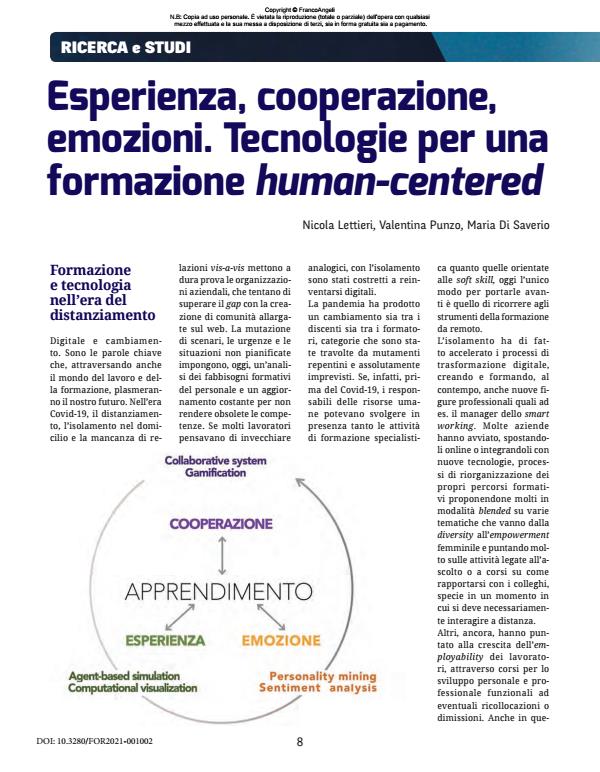Esperienza, cooperazione, emozioni. Tecnologie per una formazione human-centered
Journal title FOR - Rivista per la formazione
Author/s Nicola Lettieri, Valentina Punzo, Maria Di Saverio
Publishing Year 2021 Issue 2021/1
Language Italian Pages 7 P. 8-14 File size 583 KB
DOI 10.3280/FOR2021-001002
DOI is like a bar code for intellectual property: to have more infomation
click here
Below, you can see the article first page
If you want to buy this article in PDF format, you can do it, following the instructions to buy download credits

FrancoAngeli is member of Publishers International Linking Association, Inc (PILA), a not-for-profit association which run the CrossRef service enabling links to and from online scholarly content.
Nicola Lettieri, Valentina Punzo, Maria Di Saverio, Esperienza, cooperazione, emozioni. Tecnologie per una formazione human-centered in "FOR - Rivista per la formazione" 1/2021, pp 8-14, DOI: 10.3280/FOR2021-001002